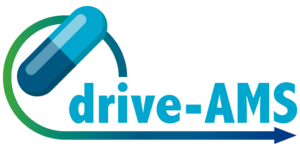drive-AMS builds on the Global-PPS platform
 Launched almost one year ago, the drive-AMS project is gaining significant traction. The project aims to implement antimicrobial stewardship (AMS) programmes in healthcare facilities as an important contribution to the fight against antibiotic resistance. The project’s approach is unique as it has two important pillars: measurement and behavioural change. Participants first measure their antibiotic use with the Global-PPS platform, after which inappropriate prescribing is identified and changed through implementing behavioural science methodologies. This will result in better prescribing practices and eventually in less resistance development.
Launched almost one year ago, the drive-AMS project is gaining significant traction. The project aims to implement antimicrobial stewardship (AMS) programmes in healthcare facilities as an important contribution to the fight against antibiotic resistance. The project’s approach is unique as it has two important pillars: measurement and behavioural change. Participants first measure their antibiotic use with the Global-PPS platform, after which inappropriate prescribing is identified and changed through implementing behavioural science methodologies. This will result in better prescribing practices and eventually in less resistance development.
The first important step in the project was taken in March 2023, when AMR key opinion leaders from the four European partner countries – Greece, Lithuania, Portugal and Romania – assembled in Nijmegen, The Netherlands, for a Training-of-Trainers course. In early 2024, the second phase in the drive-AMS implementation plan will be deployed: the country leads will organise their own courses on AMS, with the support from the core institutions Radboudumc and the University of Antwerp. Each partner will be hosting a meeting for participants from 8-10 different hospitals in their country with the aim to pass on the knowledge and educate the participants on how they can create sustainable programmes in their own hospitals. In this way, the drive-AMS philosophy will spread gradually, motivating more healthcare workers to change their prescribing behaviour.
Communication is key to forge such a network of active and motivated participants as well as to enhance the project’s visibility. We’ve therefore launched our brand new infographic, which outlines the project’s methodology and objectives in a clear and visually appealing way. To ensure broader accessibility and outreach, the infographic has been translated into the four national languages.
Check or download the drive-AMS infographic here.
More information about the drive-AMS project is available at the project’s website here.
